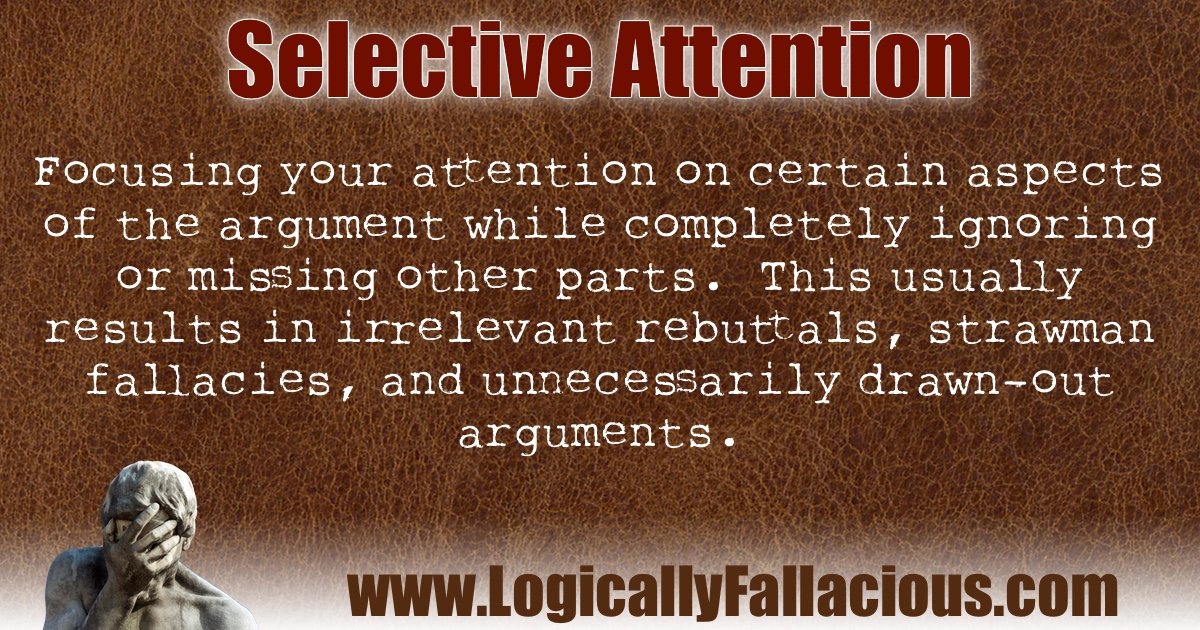Description: Focusing your attention on certain aspects of the argument while completely ignoring or missing other parts. This usually results in irrelevant rebuttals, strawman fallacy, and unnecessarily drawn-out arguments.
Logical Form:
Information is presented.
Response addresses only some of the information, completely ignoring the rest.
Example #1:
News Anchor on TV: The Dow Jones was up 200 points today, NASDAQ closed up 120 points, unemployment is and has been declining steadily, but foreclosures have not budged.
Jimbo: Did you hear that? Our economy is in the crapper!
Explanation: While there are many problems with the reasoning of Jimbo, due to his selective attention, and possible pessimism when it comes to the economy, he did not let the good news register and/or did not take that information into consideration before concluding that our economy is still in the “crapper”, based on that one piece of news on foreclosures.
Example #2: Most of us are guilty of selective attention when the information is about us. We tend to embrace the information that makes us feel good and ignore the information that does not.
Exception: Ignoring irrelevant information is a good thing when evaluating arguments. The key is to know what is irrelevant.
Fun Fact: Selective attention is mostly a cognitive bias in that it happens subconsciously. It becomes a fallacy when it shows up in argumentation.

References:
This a logical fallacy frequently used on the Internet. No academic sources could be found.